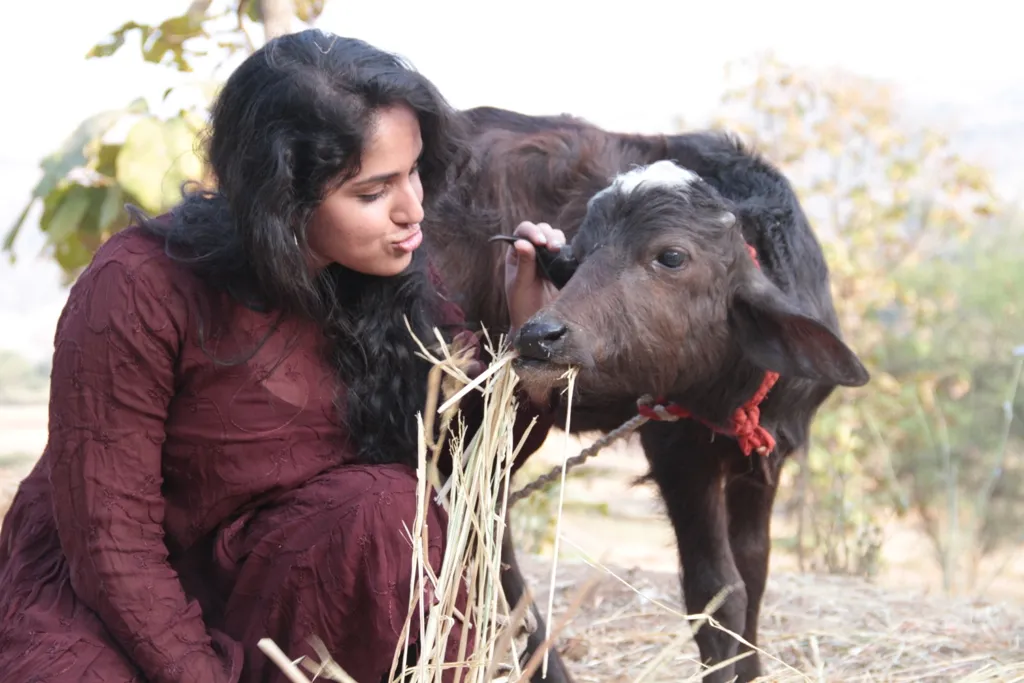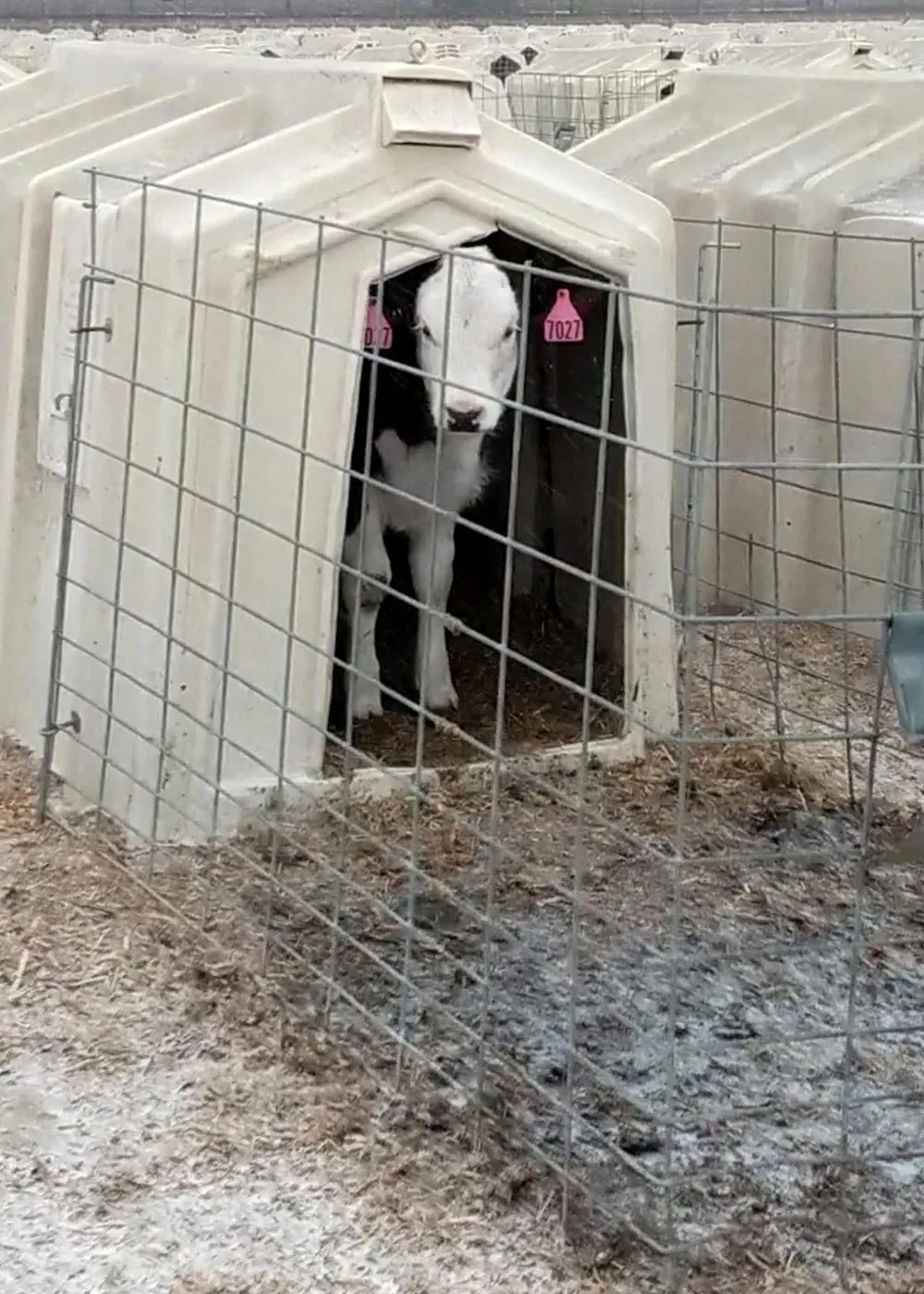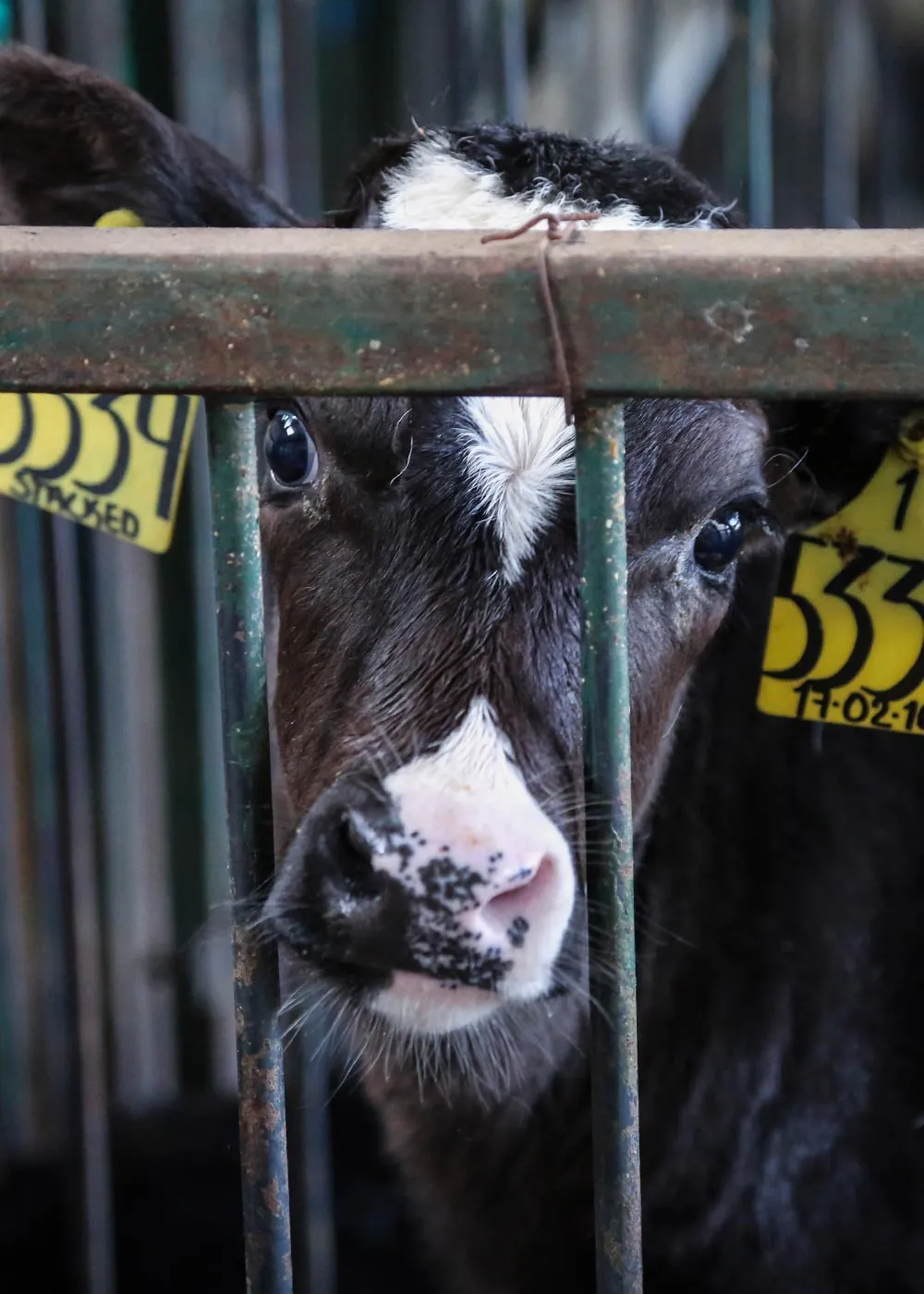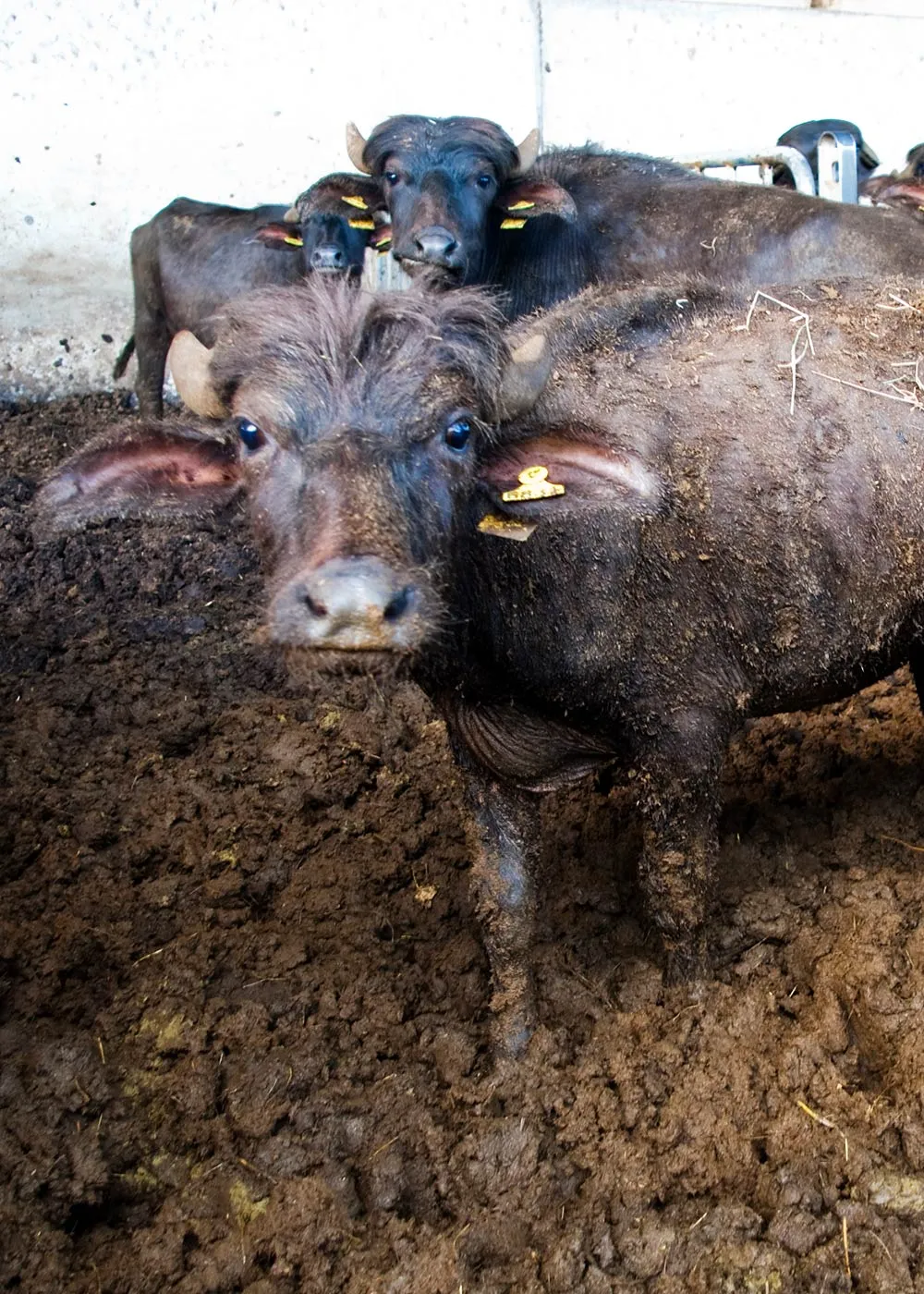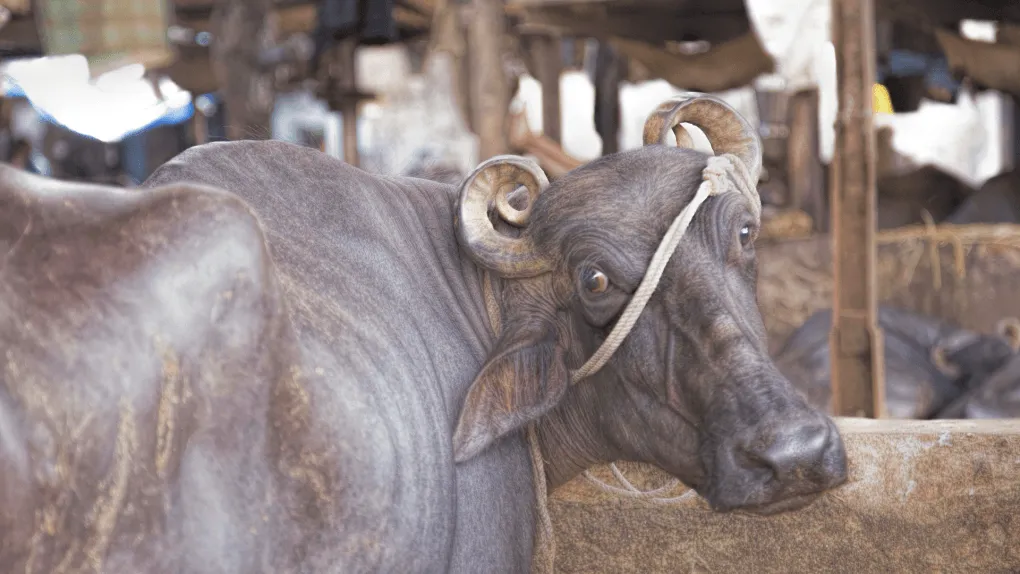
Suffering in the dairy industry
A cycle of cruelty exists in every glass of milk. Our goal is to help expose it
Dairy’s Dark Secret
Cows and buffaloes in the dairy industry suffer their entire lives. From the moment they enter this world they are treated like commodities. Special bonds are routinely broken and cows and buffaloes often develop painful medical conditions.
Just like humans, cows and buffaloes only produce milk for their offspring. Therefore, they are forcefully impregnated every year. A female and her offspring are forced through a cycle of cruelty that ends with their slaughter.
Broken Families
Much like humans, cows have strong maternal instincts but a mother’s bond with her calf has no place on factory dairy farms. Shortly after birth, calves are dragged away from their mother never to be seen again. A cow will have to go through this painful process every year of her life. The milk she produces for her calf is instead taken from her and sold to consumers.
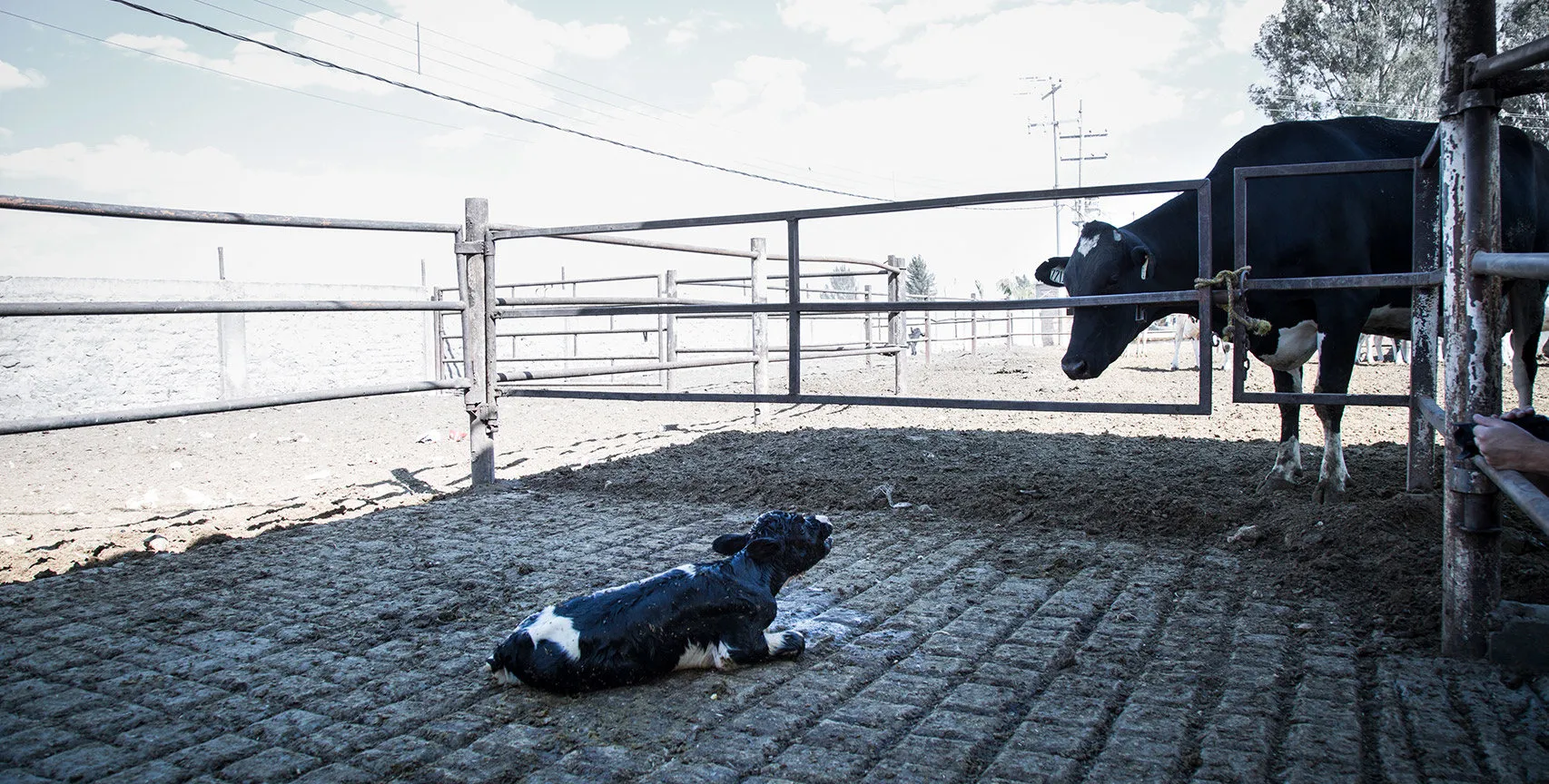
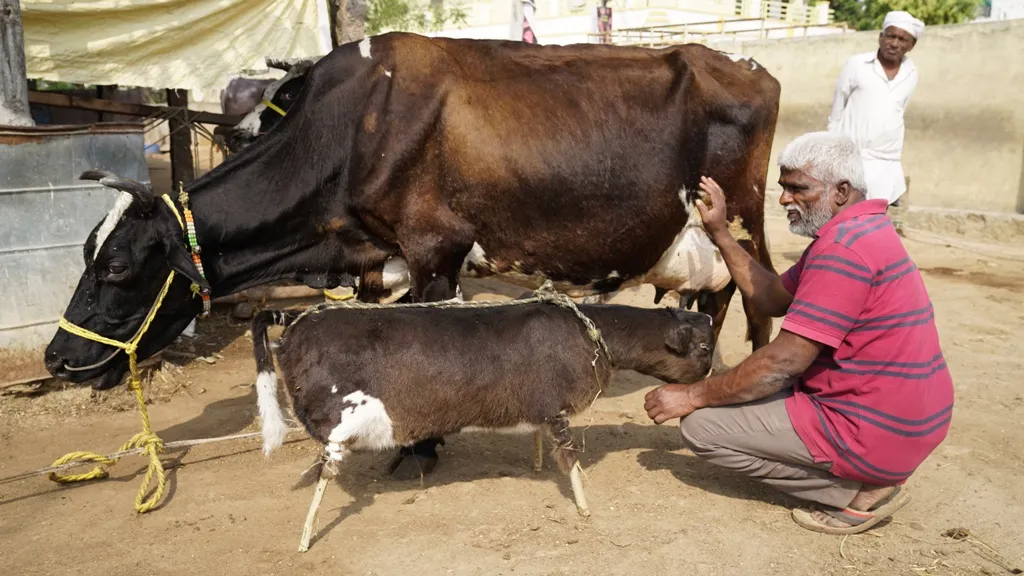
CONFINED ALONE
After being torn away from their mothers, calves tied away from their mothers. In some cases it was seen that they were tied away immediately after birth. This is done to ensure that calves do not drink any milk. Male calves are either sold for slaughter or starved to death as they do not produce any milk and add to the cost of the dairy owner. Due to the emotional stress of separation from her baby, the mother withholds milk. Dead calves are stuffed with hay to trick the mother into thinking it’s her baby.
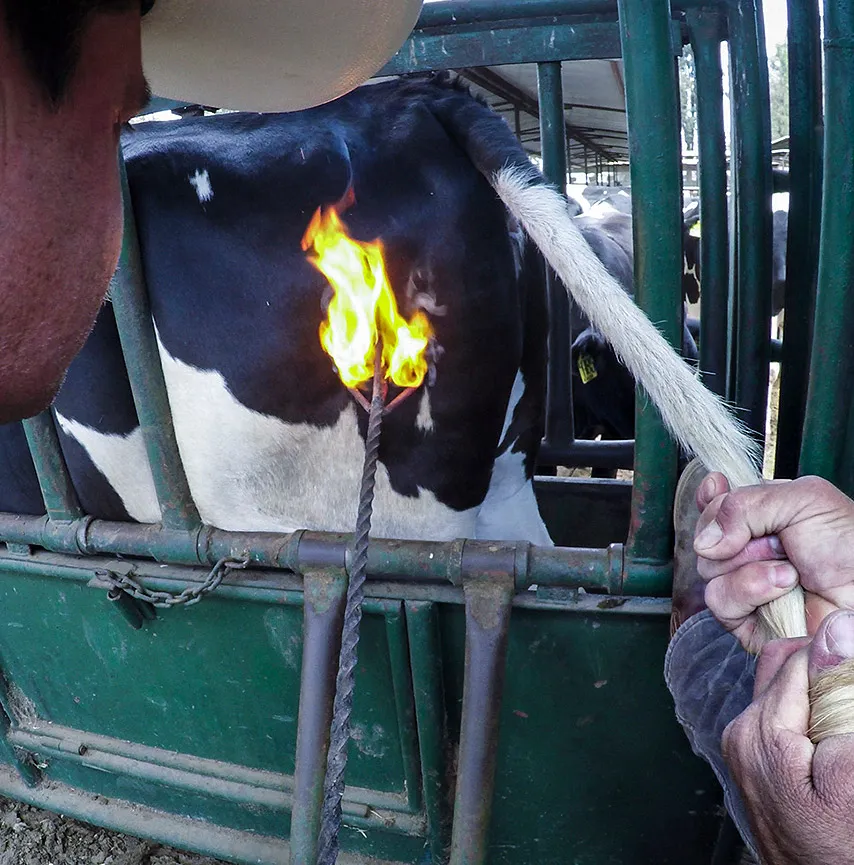
Painful Mutilations
As cows get older they undergo a series of painful mutilations:
Branding: Workers heat iron bars in open fires and burn the flesh of young cows. These untreated wounds are ripe for infection.
Dehorning: To remove an animal’s horns, workers cut them out or burn off delicate tissue. A cow’s horns are full of blood and hypersensitive nerve endings but this is done without any anesthesia.
Tail docking: Another common practice is for cows to have their tails removed. They will either be cut off with shears or, in some instances, workers will wrap wire or rubber bands around the tail.
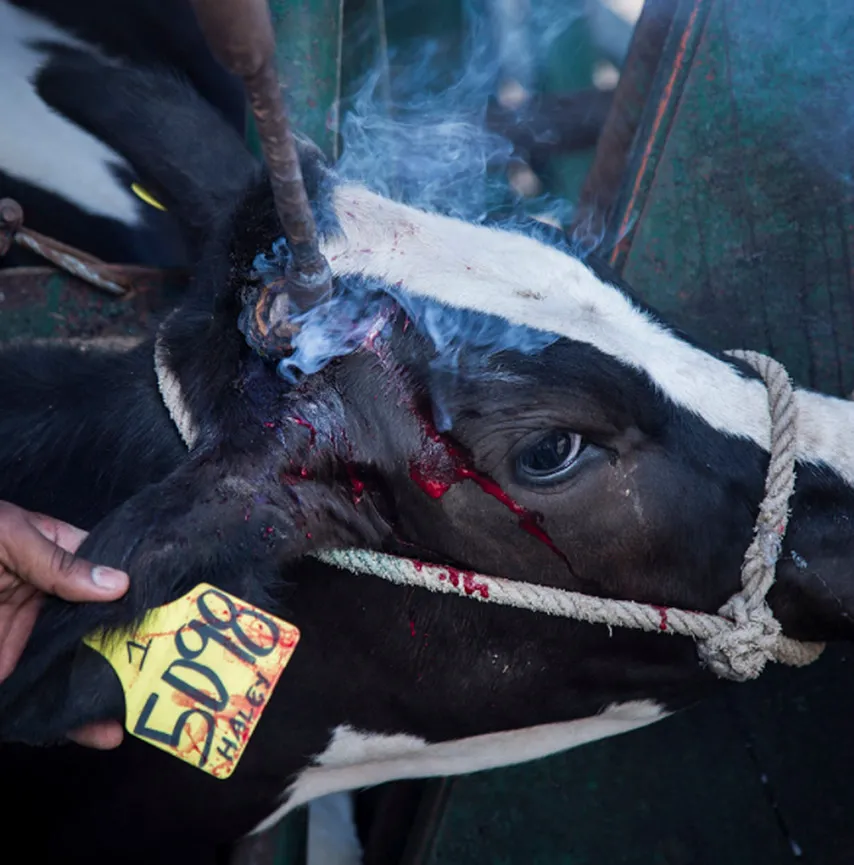
Cruel transport
Earlier animals who stopped producing milk were sold for slaughter but more than 75% of the dairies sell their animals even when their production declines by 1-2 litres. Cattle markets meant for sale of agricultural bulls and dairy animals often facilitate the sale of unproductive animals and newborn male calves for slaughter.
More than 30 animals were stuffed in a truck which should not carry more than 6 animals as per the Transport Rules 1978. The men shove sticks or fingers in animals’ genitals, rub chilly in their eyes, twist break the tails to make them submissive.
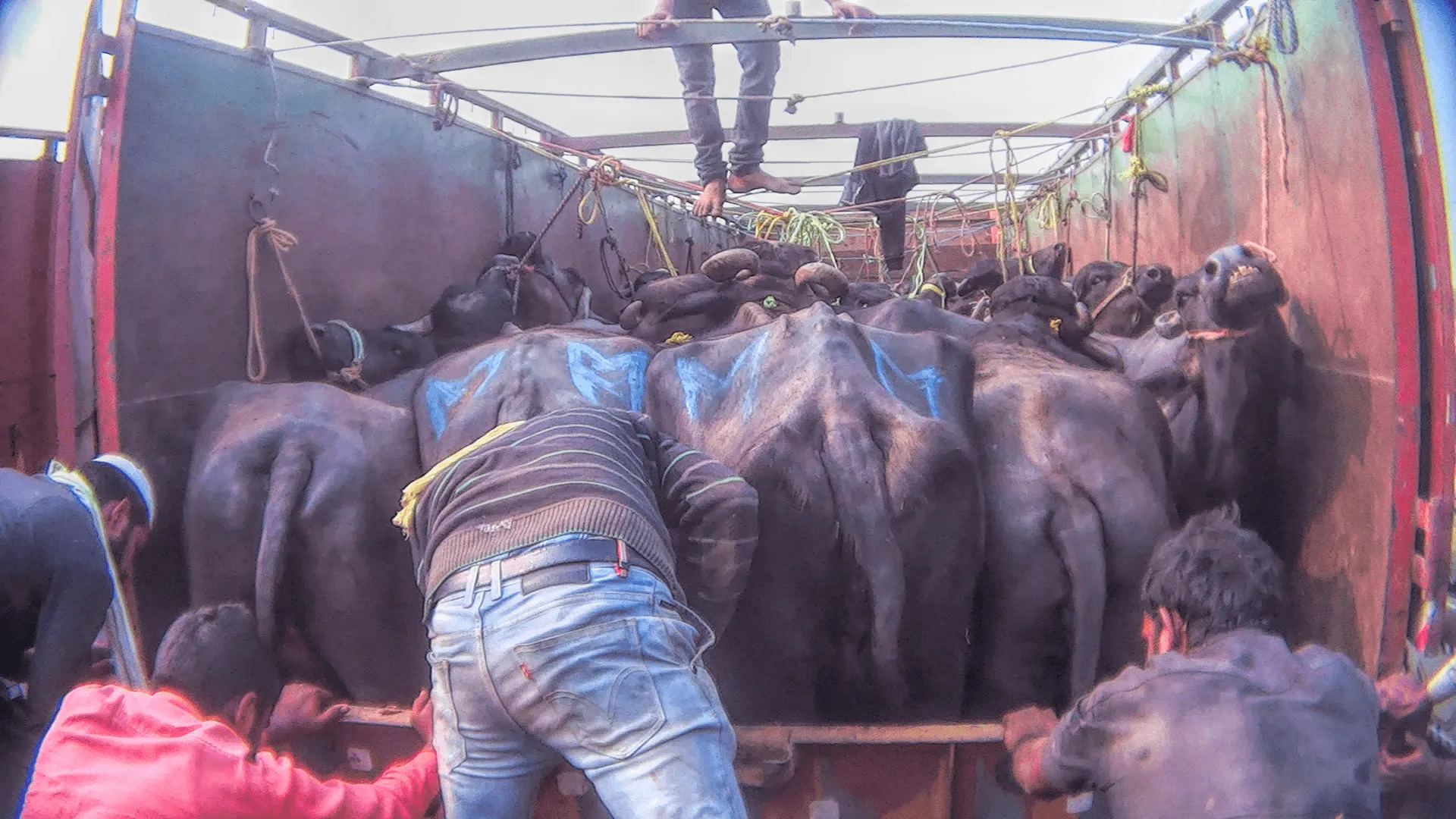
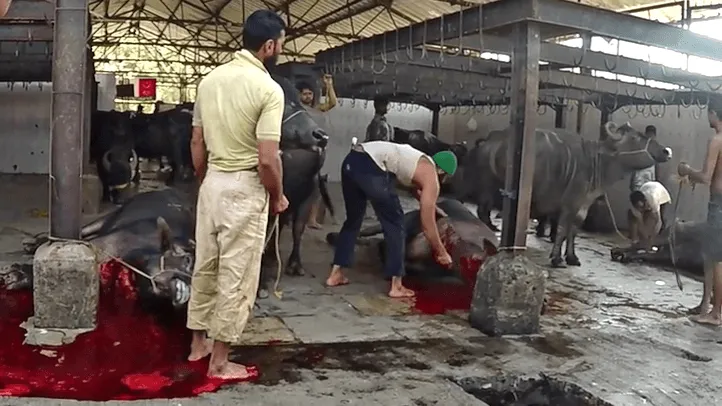
Brutally killed
Cows and buffaloes are killed when their milk production declines. None of them are allowed to live out their natural lifespan of up to 25 years. In fact, most of the beef sold in the market comes from cows and buffaloes who were exploited by the dairy industry.
At the slaughterhouses, the butchers fail to kill the animals in one slit. They repeatedly slit the animal’s throat resulting in severe shock. It’s a routine act to kill an animal in full view of others waiting in the queue. It is also noticed that the animals are alive while they are skinned.
By the numbers
Beyond the cruelty
Cruel dairy has devastating effects on the environment and can be damaging to our health.
Dairy and the environment
Raising cows for their milk contributes methane, nitrous oxide, and carbon dioxide – all of which are toxic greenhouse gasses – to the atmosphere. In fact, nitrous oxide and methane are 296 and 23 times more potent than carbon dioxide respectively.
In some places, the dairy industry contributes to the conversion of natural habitat to agricultural land – a leading cause of deforestation. Local water resources are under threat due to the poor handling of manure and fertilizers.
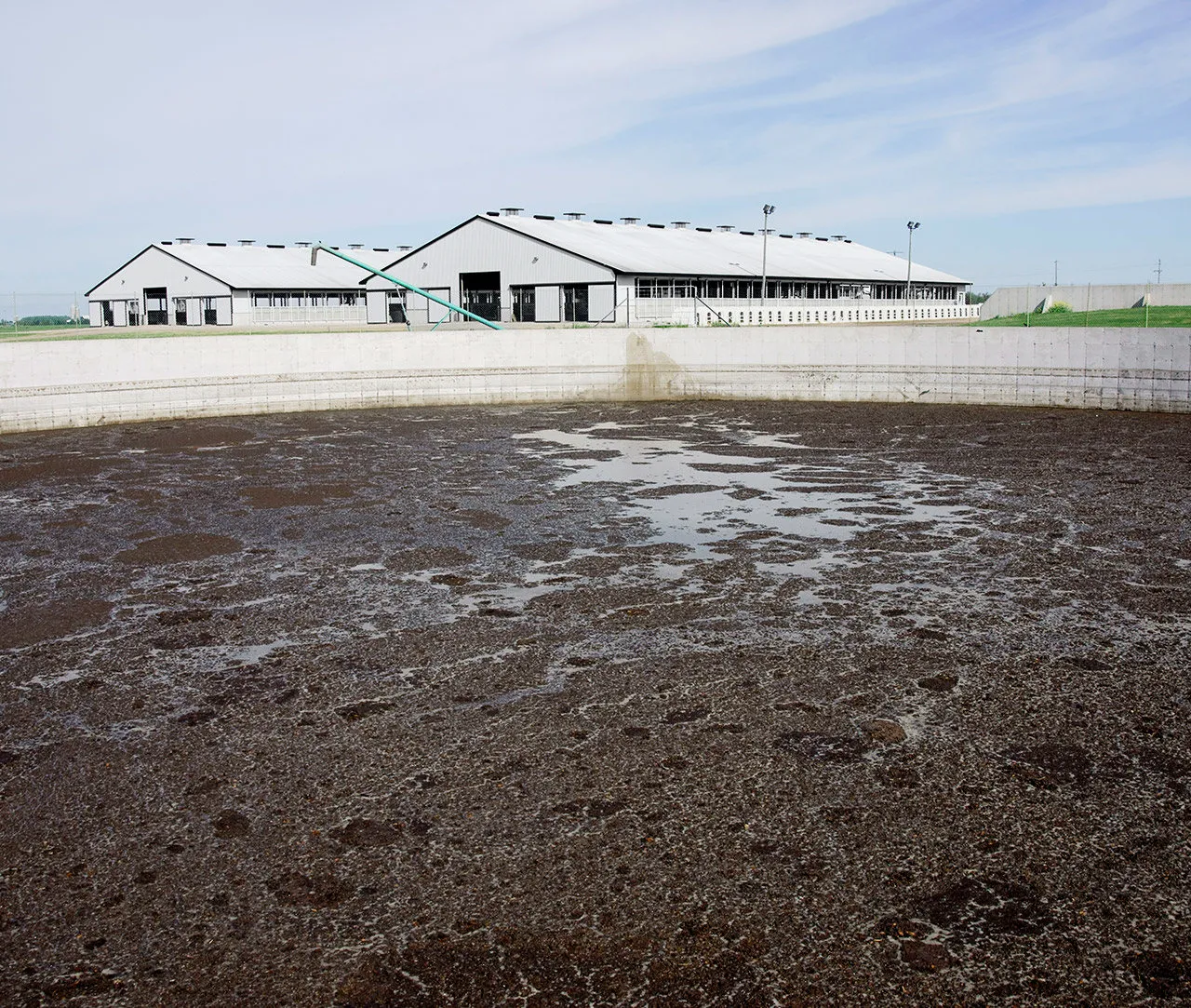

Dairy and your health
Consuming dairy products puts you at an increased risk of several serious health conditions. Dairy has been linked to higher risks of various cancers, especially to cancers of the breast and prostate. This is due to milk’s high levels of insulin-like growth factor.
Though it’s true we need calcium to keep our bones strong to prevent osteoporosis, milk is not the only nor best source of this mineral. Green leafy vegetables and fortified plant-based drinks are excellent cruelty-free sources of these necessary nutrients.
Photo: Syda Productions / Shutterstock.com
Relevant campaigns
Cruelty is standard practice on dairy farms. The public deserves to know the reality inside this secretive industry. Animal Equality conducts investigations and education campaigns that help reduce animal suffering.
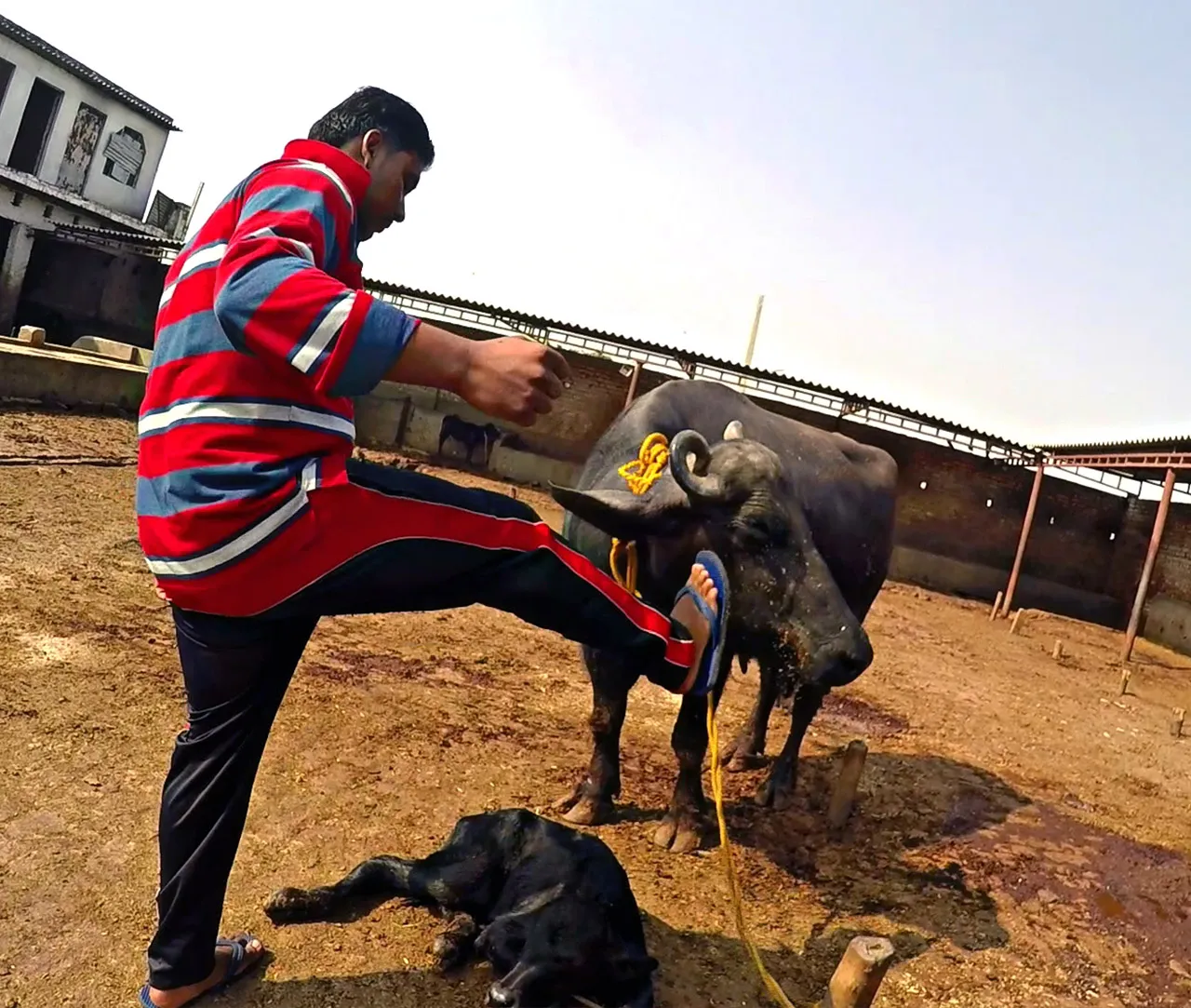
INDIA DAIRY INDUSTRY EXPOSED
Animal Equality conducted an investigation covering small, medium and large dairies across the different states of India. A total of 107 dairy farms, 2 semen collection centers, 11 live animal markets, 8 slaughterhouses, 7 meat markets and 5 tanneries were investigated.
ACHIEVEMENTS
The dairy industry is a cruel and secretive industry. But with your support, Animal Equality is exposing the truth and making progress for cows and their calves.
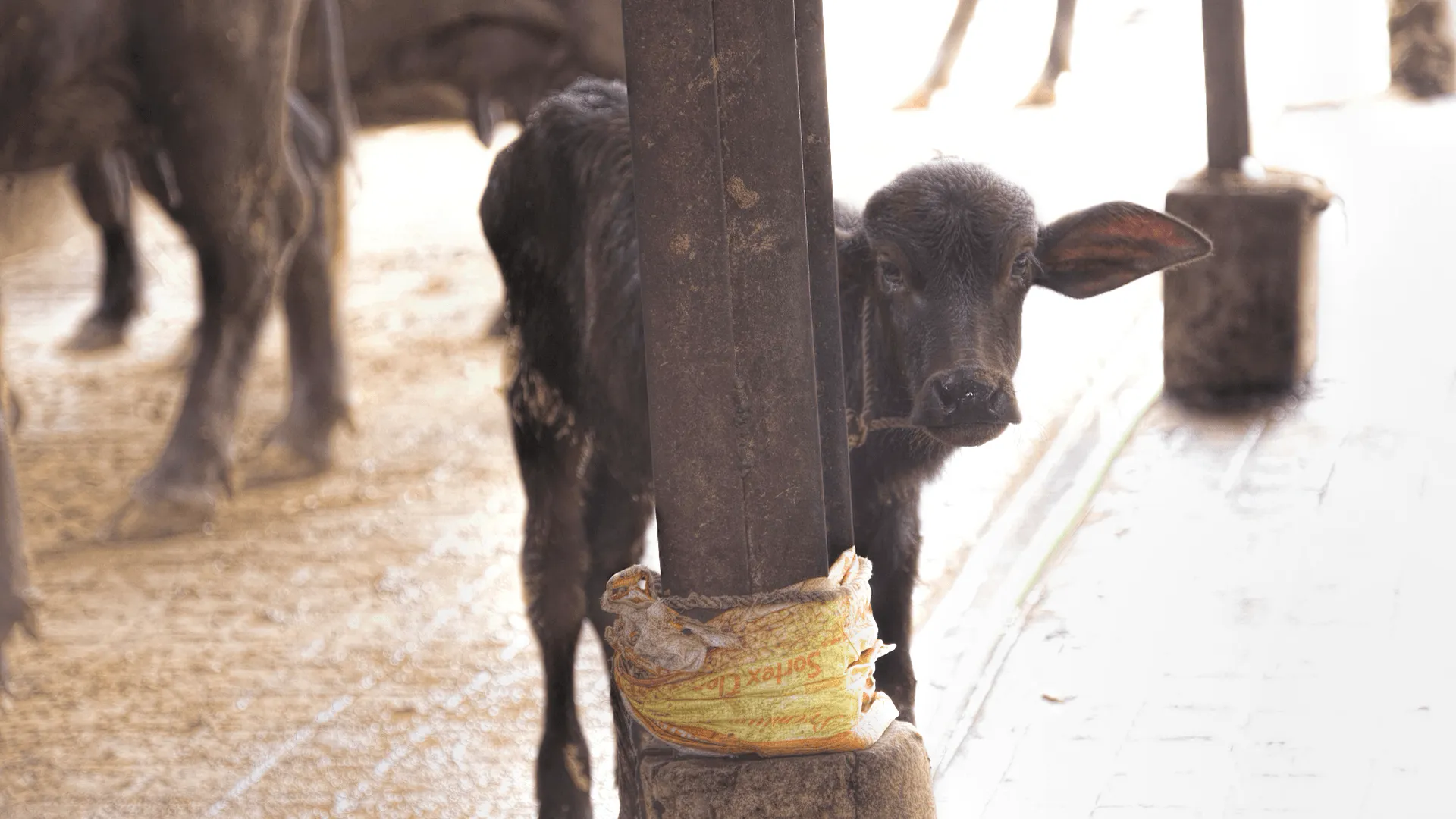
India introduces sexed semen technology
One of the recommendations by Animal Equality to the Government of India while presenting its dairy investigation was to introduce sexed semen technology. The government has introduced this technology through a pilot project and has got several states to start working on it.
New rules for cattle markets
Following Animal Equality’s investigation and recommendations to reduce the suffering of cattle at markets, the Government of India introduced rules which ban cruelties and mutilations.
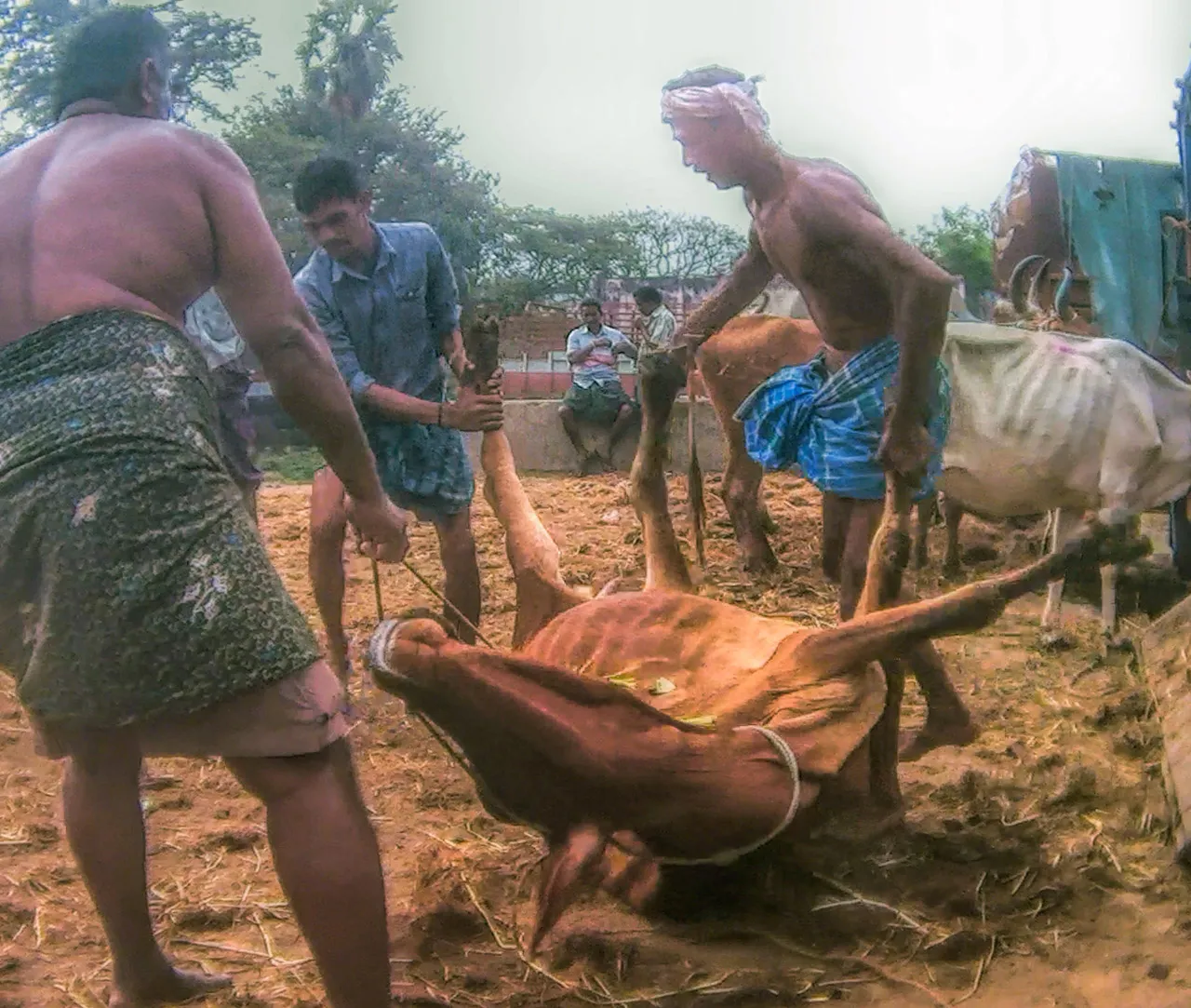
What can I do to help?

VOLUNTEER
Join forces with Animal Equality as a volunteer in your area. Whether online or at events, you can help spread awareness of the issues animals face in the deadly dairy industry. Distribute leaflets, or participate in an event in your area today!
HOW TO HELP THEM
Helping cows is now easier than it has ever been. Today, a trip to the supermarket reveals there are more plant-based options than ever before. Reducing your consumption of dairy products is the single most effective thing you can do to reduce their suffering, help the planet, and improve your health.
